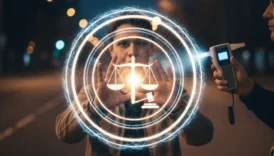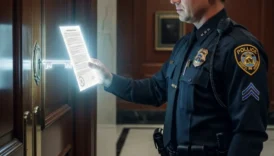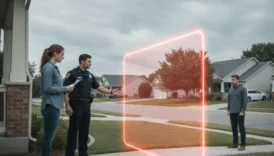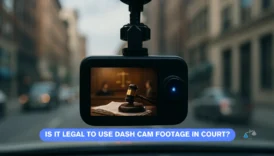Can You Sue Without Evidence?
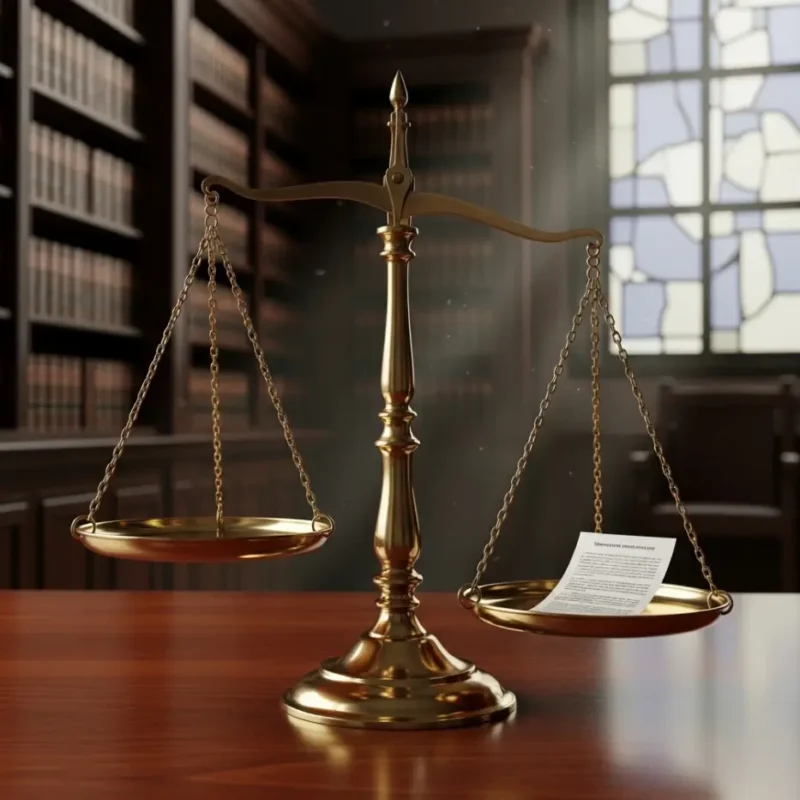
Filing a lawsuit does not necessarily require you to present all your evidence upfront, but evidence is crucial to winning. In the U.S. legal system, anyone can file a complaint if they have a legal claim, but without supporting proof, the case may quickly be dismissed or decided against them. Courts rely on evidence—documents, witness testimony, photos, videos, or expert opinions—to establish facts. While you can technically sue without strong evidence in hand, your chances of success are slim, and you may risk wasting time, money, and resources. Understanding the role of evidence in lawsuits helps clarify when a claim is worth pursuing and how courts evaluate cases.
Filing a Lawsuit: Do You Need Evidence to Start?
One of the most common misconceptions about lawsuits is that you need a stack of evidence ready before you can even file. In reality, the threshold for filing a lawsuit is relatively low. Courts generally allow individuals to bring a claim as long as they can state a legal cause of action—meaning they can describe how someone else’s actions allegedly caused harm.
Filing Requirements
- Complaint: To begin a lawsuit, you file a written complaint outlining your claims. This complaint explains the facts of the case, the law you believe applies, and the remedy you seek.
- Pleading Standard: Courts don’t require full evidence at this stage. Instead, they require a “plausible claim.” If your story, taken as true, shows a possible legal violation, the court will typically allow the case to proceed.
- Service of Process: Once filed, the complaint must be formally delivered (served) to the defendant, who then has an opportunity to respond.
Why You Don’t Need Evidence Right Away
- Discovery Comes Later: The process of gathering evidence (called discovery) happens after a case is filed. This is when both sides exchange documents, request records, and take depositions.
- Legal Access: Sometimes the evidence you need is in the hands of the other party. Filing the lawsuit allows you to request it legally.
- Court’s Role: Judges do not expect plaintiffs to prove their entire case on day one. Instead, they want to see whether there’s a potentially valid legal dispute.
Example Scenario
Imagine you believe a contractor failed to complete work on your home properly. You might not have full documentation yet, but you could still file a lawsuit alleging breach of contract. During discovery, you could request the contractor’s invoices, internal communications, or subcontractor agreements to strengthen your case.
Important Note
While you don’t need evidence in hand to file a lawsuit, you absolutely need it to win. A case without proof may survive initial filing but will likely be dismissed or lost at trial. Filing without evidence also risks being labeled frivolous, which can lead to penalties.
The Role of Evidence in Proving a Legal Claim
While you may be able to file a lawsuit without much evidence, proving your case in court is an entirely different matter. In legal proceedings, evidence is the foundation upon which judges and juries evaluate truth, assign responsibility, and decide outcomes. Without evidence, even the strongest-sounding claims often collapse under scrutiny.
Burden of Proof
- Civil Cases: The plaintiff (the person filing the lawsuit) carries the burden of proof. This usually means proving their case by a “preponderance of the evidence,” or more likely than not.
- Criminal Cases: While prosecutors bear the burden of proof beyond a reasonable doubt, defendants who bring counterclaims must also rely on evidence to support their positions.
- Why It Matters: If you file a civil lawsuit without providing sufficient evidence, the court cannot rule in your favor, even if the defendant fails to appear or respond.
Evidence as the Storyteller
Evidence does more than prove facts—it builds a narrative that helps the court understand what happened. This narrative might include:
- Documents: Contracts, receipts, letters, or digital records.
- Witness Testimony: Eyewitnesses, experts, or individuals with firsthand knowledge.
- Physical Evidence: Photos, objects, or property damage.
- Electronic Records: Emails, texts, call logs, or GPS data.
Judicial Standards
- Judges are trained to separate emotion from fact. A compelling story without evidence may sound convincing but won’t survive judicial review.
- Conversely, strong evidence—even with minimal storytelling—often leads to favorable rulings.
Example Scenario
Suppose you sue a neighbor for property damage, claiming they cut down your tree. If you bring no evidence, your word alone may not be enough. But with photographs of the stump, receipts for the tree’s value, and a witness who saw the neighbor in action, your case gains credibility.
Bottom Line
Evidence isn’t just supportive—it is essential. While courts allow lawsuits to be filed without initial evidence, the absence of proof almost always leads to dismissal or loss at trial. To succeed, you must connect claims to concrete, verifiable facts.
Types of Evidence Courts Commonly Accept
Courts rely on a wide range of evidence to evaluate disputes. Each type of evidence plays a unique role in proving (or disproving) claims, and understanding what qualifies as admissible is crucial for building a strong case.
Documentary Evidence
- Contracts and Agreements: Written documents showing terms between parties.
- Receipts and Invoices: Proof of transactions or financial losses.
- Medical Records: Evidence of injuries in personal injury or malpractice cases.
- Digital Files: Emails, text messages, and social media posts.
Testimonial Evidence
- Eyewitness Testimony: Individuals who saw or heard events firsthand.
- Expert Witnesses: Professionals who interpret complex facts (e.g., medical experts, accident reconstructionists).
- Character Witnesses: People who speak to a party’s credibility, though limited in scope.
Physical Evidence
- Objects and Items: Broken machinery, damaged property, or faulty products.
- Photographs and Videos: Visual proof of conditions or events.
- Forensic Evidence: Fingerprints, DNA, or chemical analyses (more common in criminal matters but sometimes relevant in civil cases).
Demonstrative Evidence
- Charts, Diagrams, and Models: Used to explain complex points visually.
- Timelines: Helpful in cases where the sequence of events is disputed.
- Reconstructions: Simulations of accidents or financial scenarios.
Rules of Admissibility
Courts follow strict rules about what evidence can be considered:
- Relevance: The evidence must relate directly to the case.
- Reliability: It must come from a trustworthy source.
- Hearsay Restrictions: Out-of-court statements are often inadmissible unless they meet exceptions.
- Authenticity: Parties must prove that documents or recordings are genuine.
Example Scenario
In a car accident case, a plaintiff might provide:
- A police report (documentary evidence).
- A witness who saw the collision (testimonial evidence).
- Photographs of the vehicle damage (physical evidence).
- A diagram showing the intersection (demonstrative evidence).
Together, these create a layered, compelling narrative that increases the chance of success.
Why This Matters
Knowing which forms of evidence are most persuasive helps plaintiffs prepare cases more strategically. Filing a lawsuit without evidence may be possible, but presenting accepted, admissible evidence is the only way to win.
What Happens If You Have Little or No Evidence?
While filing a lawsuit without strong evidence is possible, the reality is that your case will likely struggle to move forward. Courts base decisions on facts, not speculation, so limited or no evidence significantly reduces your chances of success.
Court Reactions to Weak Evidence
- Motions to Dismiss: Defendants often file motions to dismiss if they believe the plaintiff cannot present sufficient proof. Judges may grant these motions early in the process.
- Summary Judgment: Even if a case survives the initial filing, the defendant may later request summary judgment. If the court sees no genuine dispute of material fact due to lack of evidence, it may dismiss the case without a trial.
- Trial Consequences: If your case makes it to trial but lacks evidence, the judge or jury is almost certain to rule against you.
Risks of Proceeding Without Proof
- Financial Costs: Filing fees, attorney costs, and court expenses may pile up without any return.
- Time and Stress: Lawsuits can drag on for months or years, consuming time and emotional energy.
- Counterclaims: The defendant may respond with a counterclaim, exposing you to liability.
- Frivolous Case Penalties: Courts may label evidence-free lawsuits as frivolous, leading to fines or sanctions against the plaintiff.
Limited Evidence Isn’t Always Fatal
- Discovery Tools: Filing a lawsuit gives you access to discovery, which may uncover evidence in the defendant’s possession (e.g., emails, contracts, surveillance footage).
- Circumstantial Evidence: Even indirect evidence can build a case if multiple pieces point toward the same conclusion.
- Witnesses: Testimony, even without documents, sometimes provides enough weight to keep a case alive.
Example Scenario
A tenant sues a landlord for unsafe living conditions but has no photos or written complaints. Initially, the case seems weak. However, during discovery, the tenant obtains city inspection records and testimony from neighbors, which strengthens the claim. Without that discovery process, the case would likely have failed.
Key Point
Having little or no evidence at the start doesn’t automatically doom your case—but if you never develop proof, your claim is almost certain to fail. Courts reward preparation, documentation, and credibility, not assumptions.
Risks of Suing Without Adequate Proof
While the law allows you to initiate a lawsuit without presenting evidence upfront, doing so without adequate proof can create serious risks—legal, financial, and reputational. Courts view lawsuits as serious undertakings, and filing weak or baseless claims can backfire.
Legal Risks
- Case Dismissal: Judges may dismiss your case quickly if it lacks supporting evidence, sometimes with prejudice (meaning you cannot refile).
- Sanctions for Frivolous Claims: Courts can penalize plaintiffs who bring meritless lawsuits, imposing fines or requiring payment of the defendant’s legal fees.
- Counterclaims: If you file without proof, the defendant might file a counterclaim for malicious prosecution or abuse of process, exposing you to liability.
Financial Risks
- Court Costs: Filing fees, service fees, and administrative expenses are non-refundable.
- Attorney’s Fees: If you lose, you may not only pay your own lawyer but could also be ordered to cover the defendant’s costs in certain cases.
- Lost Resources: Lawsuits require time off work, energy, and emotional investment—all wasted if the claim lacks evidence.
Reputational Risks
- Damaged Credibility: Courts, attorneys, and even the opposing party may view you as unreliable or opportunistic if you file without proof.
- Future Cases: If you develop a reputation for filing baseless suits, it can hurt your standing in future legal disputes. Judges may scrutinize your claims more harshly.
- Professional Consequences: In some professions, being involved in frivolous litigation can impact licenses, certifications, or employment opportunities.
Strategic Risks
- Losing Leverage: Lawsuits often push parties toward settlement. But if you have no evidence, the other side has little incentive to negotiate.
- Escalation: Filing without proof may provoke the defendant into aggressively fighting back, making your position worse.
Example Scenario
Suppose someone sues a former employer for discrimination but provides no documents, emails, or witnesses to support the claim. The case is dismissed, and the employer countersues for defamation, leaving the plaintiff worse off than before.
Why This Matters
The risks of suing without adequate proof often outweigh the potential benefits. Filing may give you access to discovery, but starting a case blindly or with weak evidence can hurt you more than help you in the long run.
Building a Case: Gathering and Presenting Evidence
If you want your lawsuit to succeed, you need more than just a claim—you need evidence that supports your story. Building a strong case involves two key stages: gathering proof and presenting it effectively in court.
Gathering Evidence
- Document Everything: Keep receipts, contracts, text messages, emails, and written notes. Even small details can become valuable.
- Photographs and Videos: Capture visual proof of damages, injuries, or events as soon as possible.
- Witness Statements: Ask individuals who observed events to provide written or recorded statements. Later, they may testify in court.
- Expert Opinions: Hire professionals (like doctors, accountants, or engineers) to provide specialized insight that supports your claims.
- Discovery Process: Once a lawsuit is filed, you can request information from the other party through interrogatories, depositions, and subpoenas.
Presenting Evidence in Court
- Organize Clearly: Judges and juries prefer well-structured, chronological presentations. Scattershot evidence weakens credibility.
- Follow Rules of Admissibility: Courts exclude irrelevant, hearsay, or improperly obtained evidence. Work with an attorney to ensure your submissions meet standards.
- Use Demonstrative Tools: Charts, diagrams, and timelines can help clarify complex facts.
- Tell a Story: Evidence isn’t just a pile of documents—it should build a logical narrative that shows how you were wronged and why the law should protect you.
Strategic Considerations
- Quality vs. Quantity: A few strong pieces of evidence often outweigh dozens of weak ones.
- Anticipate the Defense: Think ahead about how the other side may challenge your proof and prepare rebuttals.
- Credibility Matters: Even strong evidence can lose power if you appear unreliable or inconsistent in your testimony.
Example Scenario
In a personal injury case, a plaintiff supports their claim with:
- Medical bills and doctor’s reports (documentary evidence),
- Photographs of the accident scene (physical evidence),
- Witness testimony from a bystander, and
- An expert reconstruction report showing how the accident happened.
Together, these create a clear and convincing picture for the judge or jury.
Bottom Line
Evidence is the engine of any lawsuit. Filing a case without it is possible, but gathering and presenting evidence effectively is the only way to move from allegations to a winning judgment.
Frequently Asked Questions (FAQs)
1. Can I file a lawsuit without having evidence?
Yes, you can file a lawsuit without presenting evidence upfront, but you will need proof later to win the case.
2. Will a judge dismiss my case if I don’t bring evidence?
Possibly. If you cannot provide sufficient evidence during trial or summary judgment, the court may dismiss your claim.
3. What counts as valid evidence in court?
Documents, photos, videos, witness testimony, expert reports, and physical objects can all be valid forms of evidence.
4. Can discovery help me get evidence after I file a lawsuit?
Yes. Discovery allows you to request documents, depose witnesses, and subpoena records from the other party.
5. Is witness testimony considered strong evidence?
Yes, especially if it is credible, consistent, and supported by documents or other proof.
6. What happens if I sue with no evidence at all?
You risk dismissal, financial losses, and possibly sanctions if the court finds your claim frivolous.
7. Can I lose money by suing without proof?
Yes. Court fees, attorney costs, and even the defendant’s legal fees may fall on you if your case is weak.
8. Are text messages and emails admissible as evidence?
Generally yes, as long as they are authentic and relevant. Courts often accept electronic communications.
9. Do I need physical evidence, or can I rely only on testimony?
While testimony can be enough in some cases, combining it with physical or documentary proof strengthens credibility.
10. Should I sue if I only suspect wrongdoing but can’t prove it yet?
It may be better to consult an attorney first. Without evidence, your case could collapse and leave you worse off.

